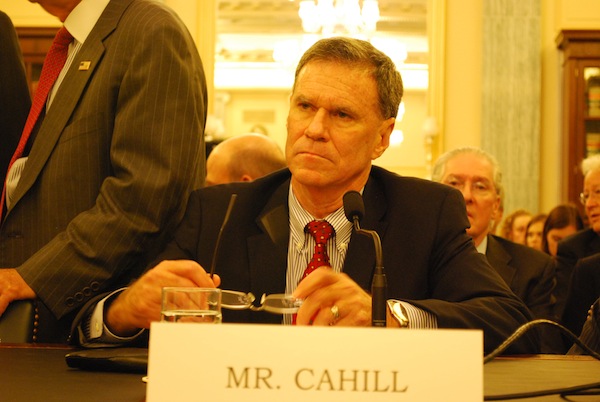WASHINGTON –Senate Democrats are pushing legislation that would tighten regulations on the cruise line industry, adding new measures to protect passengers after a recent string of safety incidents.
The International Maritime Organization and the U.S. Coast Guard regulate the North American cruise industry, as well as the ship’s “flag state” — often an island nation. According to the Cruise Line International Association, a typical cruise ship has more than 60 safety, environmental and health inspections each year.
Still, Sen. John D. Rockefeller, chairman of the Senate Commerce, Science and Transportation Committee, said stricter federal regulation might be necessary. Tuesday he introduced the Cruise Passenger Protection Act of 2013.
The bill would give the federal government greater authority to protect passengers who are subject to maritime law and also require cruise companies to provide a contract in “plain language” so consumers better understand their rights and limitations before booking a cruise.
The cruise industry, which served a record 16.9 billion passengers in the (check north America) U.S. last year, has taken its own steps in recent months to respond to safety concerns and rebuild public trust. In May, the industry adopted a “Passenger Bill of Rights” designed to provide consumers with “transparency, consistency and accountability,” according to the Cruise Line International Association, the trade association.
At a hearing Wednesday, Rockefeller, D-W.Va., questioned the bill of rights, fearing it could be “another empty promise.”
He said he had not seen any significant changes since a hearing he conducted on passenger protection just after the Costa Concordia ran aground off the coast of Italy in January 2012.
“If the industry is seriously working to improve the safety and security of its ships, why have we witnessed so many serious incidents in the last sixteen months?” asked Rockefeller.
Since the Costa Concordia tragedy, which left 32 dead, Rockefeller noted that North American cruise companies have experienced a number of issues. A fire aboard Royal Caribbean’s Grandeur of the Seas in May cut a trip short — and an engine room blaze on the Carnival Triumph in February led to a loss of power on that ship for five days.
The CEOs from both of those companies were present at Wednesday’s hearing. Adam Goldstein, CEO of Royal Caribbean International, said that safety incidents are still very rare, but he admitted that there have been more incidents in the last year than the company wants to see.
“We recognize that there is no such thing as perfect safety,” Goldstein said. “But there is a perfect commitment to safety, and that is our goal.”

Gerald Cahill, CEO of Carnival Cruise Lines, at a Senate committee hearing Wednesday. (Aubrey Pringle/MNS)
Gerald Cahill, CEO of Carnival Cruise Lines, said his company is investing in updated fire prevention and detection systems. Both CEOs showed a willingness to work with the committee but reminded senators that the industry is already heavily regulated. Taking a cruise is statistically one of the safest vacations people can take, they said.
Rockefeller said he was dissatisfied with the hearing.
“I feel like we’re talking past each other,” he said.
But the cruise passenger bill is gaining support. Since its introduction Tuesday, Richard Blumenthal, D-Conn., and Ed Markey, D-Mass., have signed on as co-sponsors.
